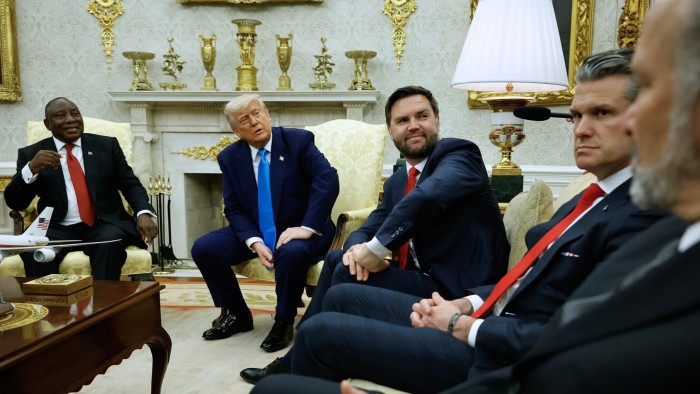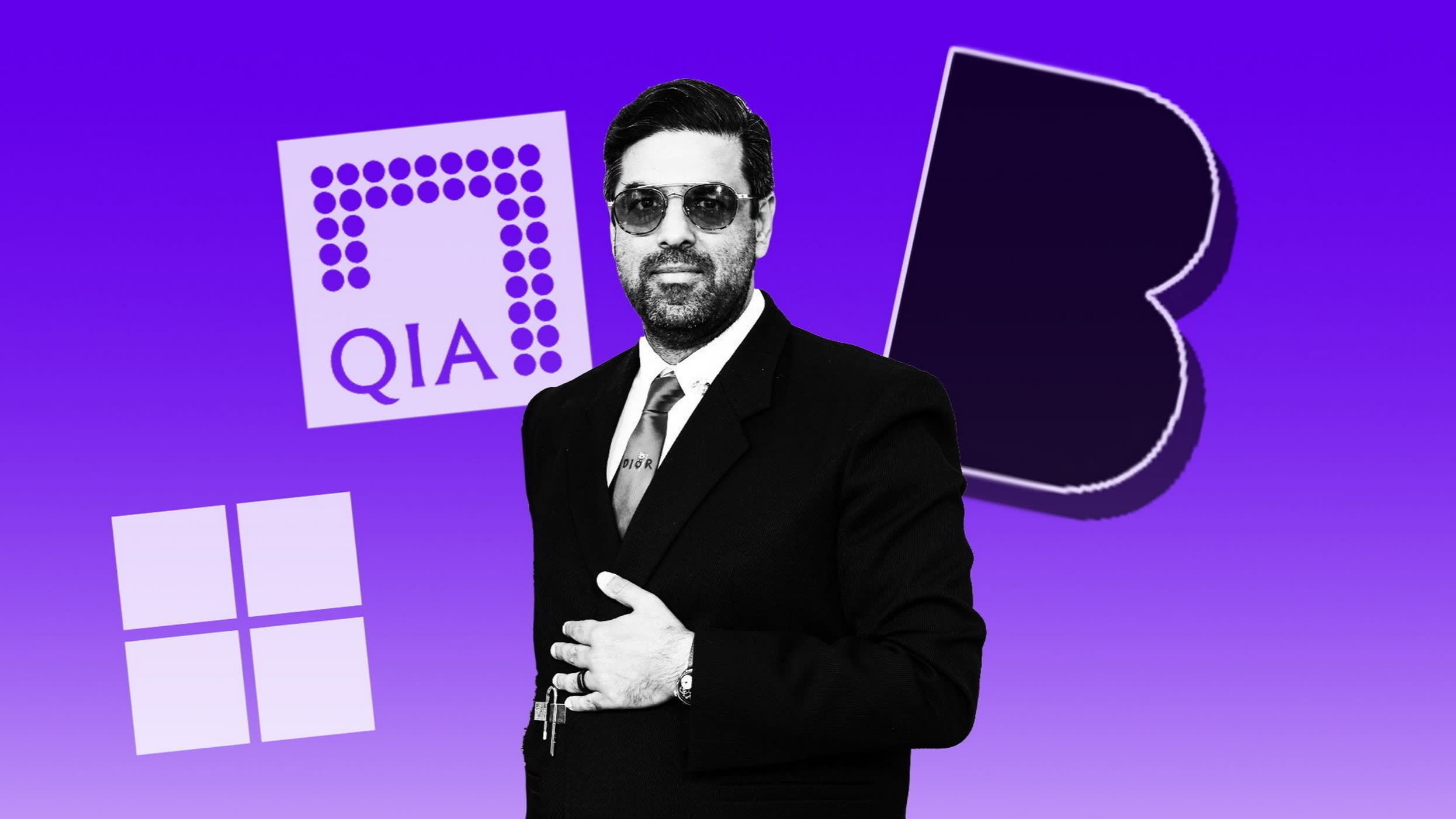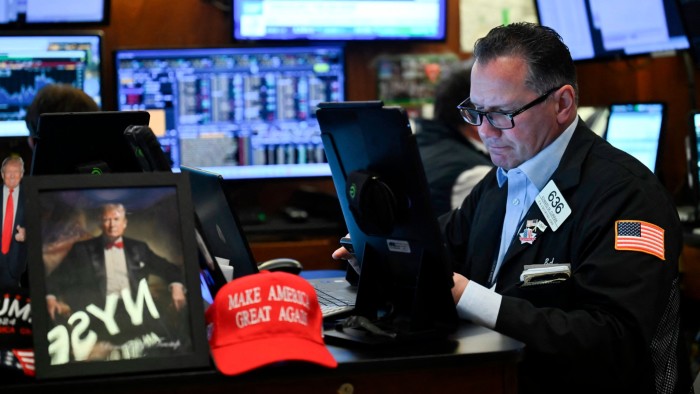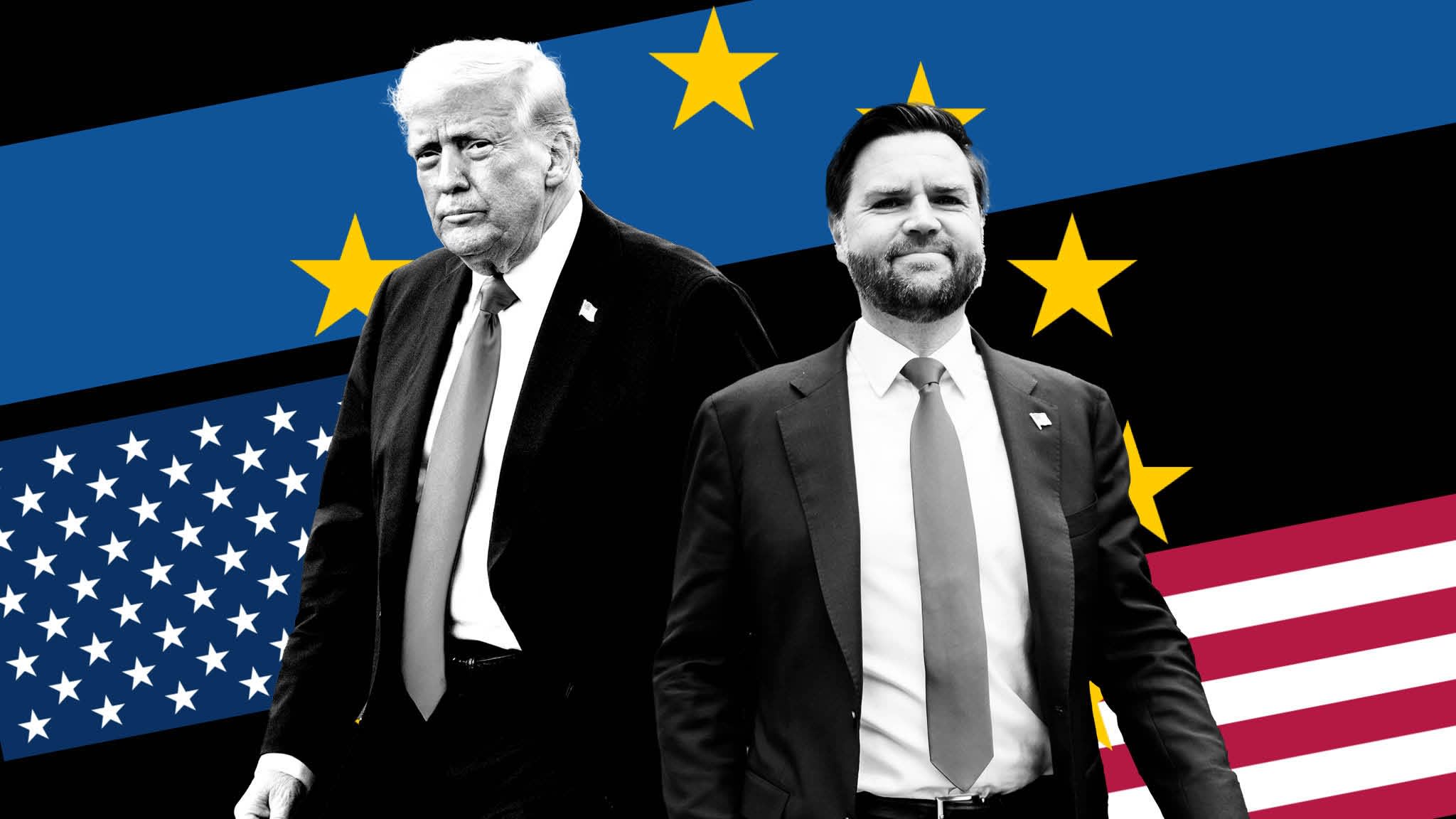The myth of Maga’s isolationism

Unlock the White House Watch newsletter for free
Your guide to what Trump’s second term means for Washington, business and the world
The tension between India and Pakistan is “fundamentally none of our business”, according to JD Vance. A man answering to the same name has, over the course of five months as US vice-president: told German politicians to accept the hard right as a potential governing partner, nagged Sir Keir Starmer on the state of free speech in Britain and pledged America to the defence of religious freedom, “both within our borders and especially outside our borders”. (My italics, if those words don’t unnerve you in plain font.)
So, America First. But also Downtrodden Christians In All Territories First. An exchange of fire between two nuclear states: not America’s business. The fate of a tweeter in Northampton, England: America’s business.
Vance isn’t a one-off. For a movement that talks a good game about sovereignty, that defines itself against “globalists”, Maga is absolutely obsessed with foreign countries. This was the real story of Donald Trump’s ambush of South Africa’s President Cyril Ramaphosa in the Oval Office last week. Yes, the hosts were off on the facts about a supposed genocide there. But that isn’t news. Yes, it was graceless treatment of a guest. But the west too often walks on eggshells around a righteous and hypocritical global south, which is itself a kind of colonial condescension. No, the wonder is that Trump cared at all. If he was ever insular, he isn’t now.
But he wasn’t, really. The most rigorous media outlets in the world described Trump as isolationist throughout his first term, even as he fired missiles at Syria and had Iran’s top general assassinated in a third country. No less a personage than John Major, the best of the UK’s living prime ministers, used the i-word about him a few months ago.
Why do serious individuals fall for this trope? In part, because people understand the world through historical precedent. The US was isolationist between the wars (there is something of Charles Lindbergh in Trump’s northern European stock, if less so in his attitude to physical risk) whereas there is no reference point for what the US is now.
But the larger reason is that an isolated America is easier for allies to fathom than an actively hostile one. Isolation is a legitimate choice, especially for the one superpower in history that has the geographic remoteness to pull it off. The rest of the free world could, at great cost, work around it. America as a hermit republic would if nothing else be predictable in its behaviour. The worst of all worlds is Trump’s US: one that no longer defends its allies with hard power, but subverts and undermines those among them that it finds ideologically wanting. In other words, calling the US isolationist understates the problem.
Maga fixates on Europe above all. Long before Trump, there was a fringe of American conservatism that took a prurient interest in the old continent, on account of its atheism, low birth rate and porousness to Muslim migrants. But it was a fringe. And it didn’t intend to act on its analysis. Neither of those things holds now. Also, the right’s concern for Europe today sits alongside a slightly kitsch reverence for the place as the ultimate source of western civilisation: all those Doric columns and Stoic epigrams in alt-right Twitter feeds. The result is something of an intellectual farrago — Christian nationalists exalting the pagan temples of old Athens — but don’t doubt the underlying sincerity. These people want to save the continent from itself. The missionary element of American statecraft did not fade with the neoconservatives.
Why this desire to meddle? Because this is a rare field were the US can, without much cost.
America’s share of world output is well down from its all-time peak. Its military, which used to be so far ahead that it wasn’t worth asking which nation was second, now faces mortal competition from China. In most “hard” senses, the US has less purchase on the world than it once did. But the Oval Office remains the biggest pulpit on Earth. Most of the social media platforms on which ideas and values do battle nowadays are American. The very language in which much of this is conducted suits an anglophone power.
If the administration tries to warp the internal politics of other countries through propaganda, it stands a chance of succeeding. And if it fails, what fun can be had in the attempt. Is Trump’s heart in this stuff? I doubt it. He prefers the tangible action of “deals” and events. But Vance, Elon Musk and others around the president came of age as politics was becoming an extension of commentary. Even if there is little the US will do for white farmers in South Africa, the point is to take a side and send a signal. The argument is the outcome.
In the end, there is almost no such thing as an America isolationist now, not in the Pat Buchanan or Gore Vidal sense. When a nation has had assets and interests the world over for this long, its governing class is almost compelled to get involved. You just wonder if the present authorities have knowledge to go with their fascination. Vance once said that London “doesn’t feel fully English to me anymore”. Anymore? He is younger than me. At no point has the place felt fully or even highly English in my lifetime. He also seems mystified that a country without a First Amendment falls short of US free speech standards. “How we miss the isolationists,” is an unimaginable European lament, but one we might find ourselves muttering.






